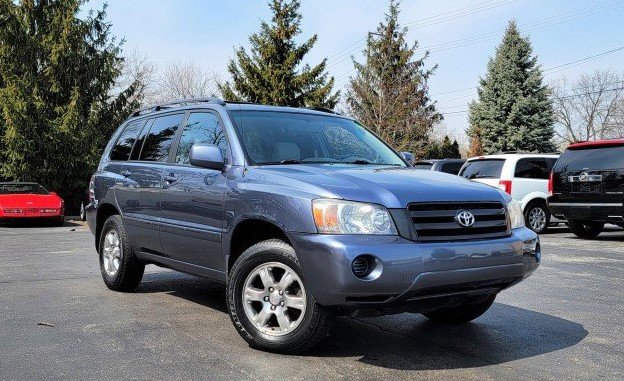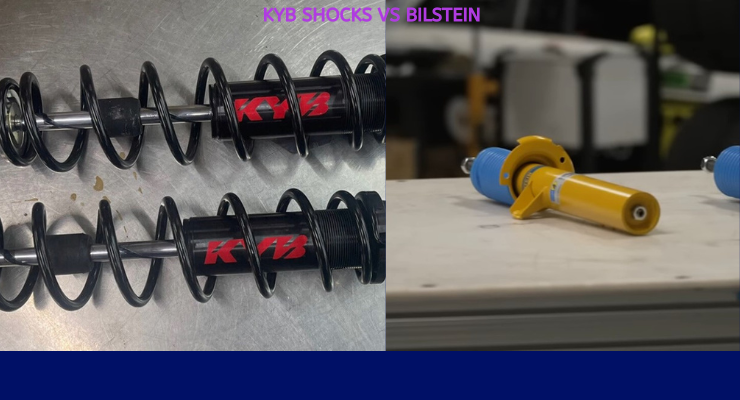2012 Toyota Highlander Problems: Common Issues With Fixes
The 2012 Toyota Highlander is a mid-size SUV. The Toyota Highlander is well known for its reliability and comfort. Built with advanced technical components, this Highlander offers a smooth driving experience. But like any other vehicle, the 2012 Toyota Highlander problems may develop over time.
The most common problems reported by owners are electrical problems, mechanical problems, and battery problems. These common problems are reported by 2012 Toyota Highlander owners to be almost noticeable.
A variety of common vehicle problems can occur. Proper care and maintenance will keep your vehicle running for a long time. This report on Toyota Highlander will discuss the most common problems faced by 2012 Toyota Highlander owners and provide some necessary solutions to solve them.
Common Problems and Solutions of the 2012 Toyota Highlander
Below are some common issues of the 2012 Toyota Highlander and their basic solutions:
| Problems | Solution |
| Engine Oil Leaks | Try to understand the main causes of engine oil leaks-Check the engine regularly. Make sure the oil filter is installed correctly. |
| Air Conditioning Problems | Sort out the cause of air conditioning problems-Repair or replace the compressor. Low refrigerant levels can cause air conditioning problems. So recharge the refrigerant regularly. |
| Brake System Concerns | Watch out for warning lights on the dashboard. This warning light tells you there is a problem with the brake system.-Replacing brake fluid regularly maintains proper brake performance. |
| Transmission Problems | Hard shifting or jerky driving should be avoided.-Replace worn-out clutch plates or bands.-Avoid overloading the vehicle. |
| Electrical Problems | Blown fuse-Check the fuse box. It is recommended to replace the faulty fuses. Defective starter-Consult a professional mechanic to diagnose the exact problem of a faulty starter. |
| Battery Problems | Avoid leaving lights or accessories on for long periods of time.-Jump-start your car using jumper cables and a charged battery.-Batteries need to be replaced if they frequently lose charge. |
| Maintenance Tips | Check oil regularly to maintain engine efficiency.-Checking all vehicle fluids.-Replace the air filter according to a manufacturer’s recommendation. |
2012 Toyota Highlander Common Problems & Their Solutions in Detailed
Mechanical Problems
If you own a 2012 Toyota Highlander, it is essential to be aware of the common problems with this SUV. The Toyota Highlander has been praised for its reliability. However, some mechanical problems can occur in a vehicle. I will provide some ideas on how to prevent or solve these problems.
Engine Oil Leak
Another common problem with the 2012 Toyota Highlander is engine oil leaks. The main causes of oil leaks are corroded gaskets, faulty oil seals, or loose oil drain plugs. Long-term neglect can increase the problem of oil leaks. Timely inspections and quick fixes can save you from costly repairs. Also, explore 2011 Toyota Highlander problems.

Solution:
- Conduct regular inspections to identify oil leaks early.
- Check the gaskets, oil seals, and oil drain plugs for any signs of damage or corrosion.
- Replace any faulty components promptly.
- Use the recommended grade of engine oil and change it at the recommended intervals.
- Keep the engine clean to prevent oil residue buildup.
- Address any oil leaks immediately to prevent costly repairs.
- Monitor the oil level regularly.
The functionality of Power Door Locks
2012 Toyota Highlander has reported problems with power door locks. Door locks may not work properly due to faulty actuators or wiring problems. Check door locks regularly. Consult a qualified mechanic if any signs of malfunction occur. Alos, check the 2003 Toyota Highlander’s problems
Solution:
- Regularly check the power door locks for malfunctions.
- Pay attention to unusual noises or delays when operating the door locks.
- Consult a qualified mechanic to diagnose and resolve any issues.
- Replace faulty actuators or repair wiring as needed.
Air Conditioning Problem
Air conditioning system problems are one of the most common problems. Poor airflow, unusual noises coming from the AC unit, etc. are signs of faulty air conditioning. Regular maintenance of the AC system is essential. Checking the refrigerant regularly can help prevent such problems. It is also best to have it inspected and serviced by a professional.

Solution:
- Regularly maintain the AC system.
- Check the refrigerant level regularly.
- Have the AC system inspected and serviced by a professional.
Steering Wheel Problem
Some drivers have experienced
Solution:
- Regularly inspect the steering system for vibrations, difficulty turning, or a loose steering wheel.
- Consult a qualified mechanic to diagnose and address steering wheel issues.
Brake System Concerns
2012 Toyota Highlander owners also reported brake-related issues with their Highlander. Includes squeaking or grinding noise, a soft brake pedal, and uneven brake wear. Regular brake inspection and maintenance are very important. Consult a qualified mechanic to ensure optimum braking performance.
Solution:
- Regularly inspect the brake system.
- Address any unusual noises or changes in brake pedal feel promptly.
- Ensure the brake components are in good condition and replace any worn parts.
- Consult a qualified mechanic for brake inspections and repairs.
2012 Highlander Transmission Problem
A few owners have reported problems with the transmission of the 2012 Toyota Highlander. However, let’s talk about some transmission problems.
You need to identify your Highlander’s transmission problems before troubleshooting.
Rough shifting causes the vehicle to feel jerky while shifting gears. An increase in RPM without an increase in vehicle speed is one of the transmission problems. Transmission fluid leaks may also occur. Car fluid leaks indicate this. Again, notice if the dashboard warning light is on.
The transmission warning light illuminates when there is a problem with the transmission.
If you notice any of these symptoms, addressing the problem immediately is crucial to prevent further damage and costly repairs.
Fluid Level
Low transmission fluid is a common cause of transmission problems. If the fluid level is low, add the appropriate transmission fluid. If the liquid burns or smells bad, it indicates a serious problem. It would be best to have it checked by a professional mechanic.
Transmission Fluid Quality and Replacement
Regular transmission fluid maintenance is crucial for smooth and trouble-free transmission. If the fluid looks dirty, it should be replaced. Refill the transmission with the appropriate fluid.
Follow the manufacturer’s instructions for fluid type and replacement interval.
Inspection and Testing of Transmission Solenoids
The transmission solenoid is an electro-hydraulic valve. It controls the flow of fluid in the transmission. A faulty solenoid causes shifting problems. Inspect and test the solenoid regularly to keep the transmission running. If the solenoid exhibits an open circuit, it may require replacement.
Faulty Torque Converter
The torque converter transfers power from the engine to the transmission. A faulty torque converter causes transmission problems. Check the lockup function of the torque converter. A professional technician is best to perform this test. However, it may require replacement if it fails the stall test.
Solution
- Identify rough shifting, increased RPM without speed, fluid leaks, and warning light issues.
- Address problems promptly to prevent further damage and costly repairs.
- Maintain proper transmission fluid levels; add if low.
- Replace dirty or bad-smelling fluid, following the manufacturer’s guidelines.
- Inspect and test transmission solenoids; replace faulty ones.
- Have a professional technician check the torque converter’s lockup function.
- Replace the torque converter if it fails the stall test.
Electrical Problems
Reports from owners of the 2012 Toyota Highlander speak of common electrical problems. Almost all components of a technical vehicle are arranged electronically. Important components of the vehicle are connected electrically. A vehicle’s electrical problems can occur at this stage. Some electrical problems are described below.
Defective option
The alternator plays an important role in charging the battery. A faulty option could be an electrical fault. If you notice a battery warning light on the dashboard, it indicates a problem with the alternator. Check the alternator periodically. Have it inspected by a qualified mechanic, they will recommend replacing it if necessary.
Blown fuse
This fuse prevents the vehicle’s electrical components from being energized. Normally the circuit is interrupted due to a blown fuse. Blown fuses cause certain electrical functions such as headlights, radio or power windows to fail. Check the fuse box if any of these components are faulty. It is recommended to replace the fuses with new blown fuses of the same amperage.
Defective starter
A faulty starter prevents the engine from starting. A clicking sound when starting the car indicates a failed starter. Check the starter. It is best to visit a professional mechanic to diagnose the exact problem.
Solution:
- Check the alternator periodically and address any battery warning light on the dashboard immediately. Replace the alternator if necessary, and seek a qualified mechanic’s inspection.
- If certain electrical functions like headlights, radio, or power windows fail, check the fuse box for blown fuses. Replace blown fuses with new ones of the same amperage.
- If the engine fails to start and you hear a clicking sound, check the starter. For a proper diagnosis, consult a professional mechanic.
Battery Issues and Extending Battery Life
The battery is an important component of the 2012 Toyota Highlander. Battery plays a role in running the engine of a vehicle. The battery system also provides the power required to operate various electrical systems.
Sometimes this battery remembers various problems. A defective battery does not allow the vehicle to be driven. Certain steps must be taken to prevent unexpected breakdowns. Extending battery life is crucial to ensure the smooth operation of your Toyota Highlander. Let’s explore some practical tips to extend battery life.
Dead Battery
A dead battery is one of the common problems. A dead battery can happen for a number of reasons. Notable among these is if the engine does not run properly. Leaving lights or accessories on for long periods of time is responsible for dead batteries. If the Highlander does not turn on when you turn it on or the lights are dim this indicates a dead battery.

Try jump-starting your car using jumper cables and a charged battery. The alternator battery should recharge when the engine starts. If the battery loses charge frequently, it needs to be replaced.
Corroded or Loose Battery Terminals
Corrosion or loose connections at the battery terminals disrupt the flow of electricity. This corroded battery terminal affects battery performance. Usually, the greenish powdery substance around the terminal is the corroded part.
Regularly inspect the battery terminals and clean them using a battery terminal cleaner if any corrosion is noticed. Make sure the terminals are securely tightened to maintain a good electrical connection.
Low Battery Fluid Level
Leaks in non-sealed batteries cause the fluid level to drop over time. To avoid this problem, inspect the battery regularly and look for any leaks or holes. Also, check the fluid level regularly. Avoid overfilling as this will maintain the battery’s fluid level and reduce the chance of malfunction.
Extreme Temperature
2012 Toyota Highlander Extreme cold or hot weather affects battery performance. This can damage the battery quickly. Cold weather reduces the cranking capacity of the battery. This results in engine starting problems. Maintain the proper level of your vehicle’s battery as directed.
Solution
- If you encounter a dead battery, try jump-starting your car with jumper cables and a charged battery. If the battery frequently loses charge, consider replacing it.
- Regularly inspect battery terminals and clean any corrosion using a battery terminal cleaner. Ensure terminals are securely tightened for a good electrical connection.
- Check the battery’s fluid level regularly, avoiding overfilling, to prevent drops due to leaks in non-sealed batteries.
- Extreme cold or hot weather can affect battery performance. Maintain the battery as directed to avoid starting problems and potential damage caused by temperature fluctuations.
Maintenance Tips
Regular maintenance is paramount to ensuring the longevity and optimal performance of a 2012 Toyota Highlander. Your Highlander will stay active with proper care and a few routine steps. Here are some essential maintenance tips.
Regular Oil Changes
Engine oil is one of the most essential components of your vehicle. Check oil regularly to maintain engine efficiency. It is also very important to change the oil filter. 2012 Toyota Highlander oil changes are recommended every 5,000 to 7,500 miles depending on driving conditions.
Check The Fluid
Checking all vehicle fluids is an important step in keeping a vehicle running and for smooth driving. Inspect and regularly top up all necessary fluids such as coolant, transmission, brake, and power steering. Correct fluid levels contribute greatly to Highlander’s performance.
Replace The Air Filter
A clean air filter maintains good engine performance. Air filter mainly helps in increasing fuel efficiency. Replacing the air filter according to a manufacturer’s recommendation will prolong the life of your vehicle.
Tire Maintenance
Tires are one of the most important components of a Highlander. Maintaining proper tire pressure is critical to keeping the vehicle active. Regularly inspect tire pressure and tread wear. Worn-out tires can affect fuel efficiency. Rotate tires every 5,000 to 7,500 miles to maintain proper wear.
Brake Inspection
Brakes are an important safety component of a vehicle. Brake system troubleshooting should be done by a mechanic. Any sound indicating it’s time to check and replace the brakes. Inspect the brake system regularly. Replace brake pads if necessary.
Watch this video:
FAQs
Q: Is the 2012 Toyota Highlanders a reliable vehicle?
Yes, the 2012 Toyota Highlander is considered a reliable vehicle. It has a proven record of performance. Regular maintenance is essential to keep your vehicle running smoothly for a long time.
Q: How much should I expect to spend on 2012 Highlander repairs?
Repair costs may vary depending on the specific problem. Next comes your condition. This cost may also vary depending on your condition. Good maintenance can help reduce unexpected repair costs.
Q: How often should I change the oil in my 2012 Toyota Highlander?
The oil change interval for the 2012 Highlander is usually every 5,000 to 7,500 miles. Oil changes will depend on the usage of your Highlander. Always refer to the manual for proper instructions.
Q: Is it worth buying a used 2012 Toyota Highlander?
Buying a used 2012 Highlander is a cost-effective option. Do a thorough inspection before buying a used Highlander. Knowing about the vehicle’s maintenance history is also essential.
Final Verdict
The 2012 Toyota Highlander SUV is well known for its spacious interior, smooth ride, and reputation for reliability. A popular choice among enthusiasts is the Toyota Highlander. But with the passage of time, some changes in Toyota Highlander are visible. Like any vehicle, it is not immune to some issues.
Learned about some common 2012 Toyota Highlander problems and provided some solutions. Regular maintenance, prompt repairs, and attention to potential warning signs will keep your Highlander driving smoothly.







